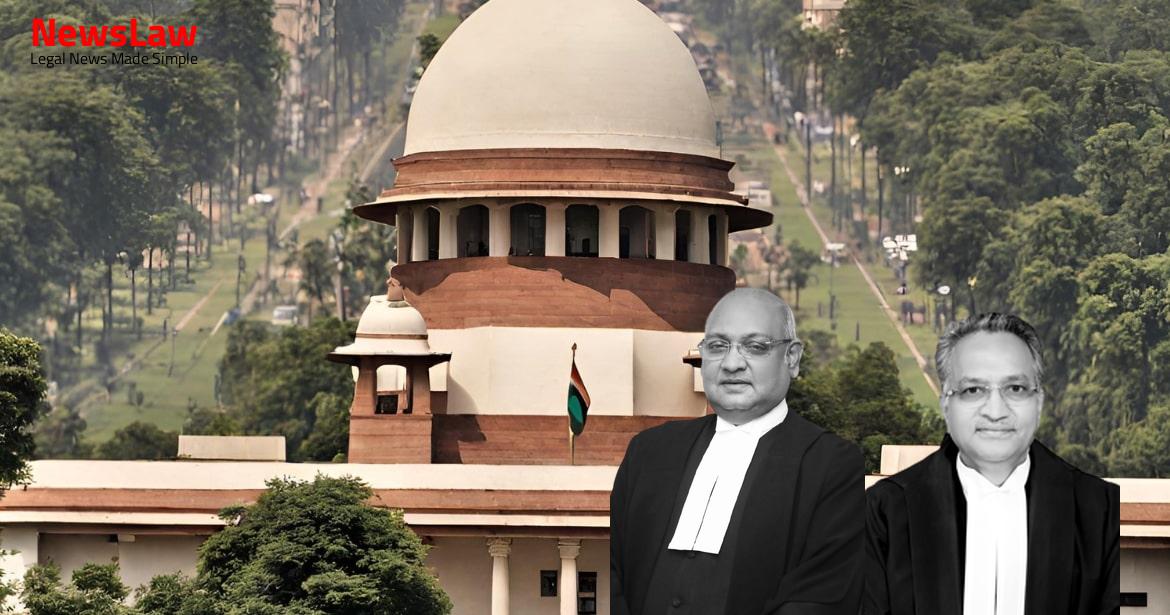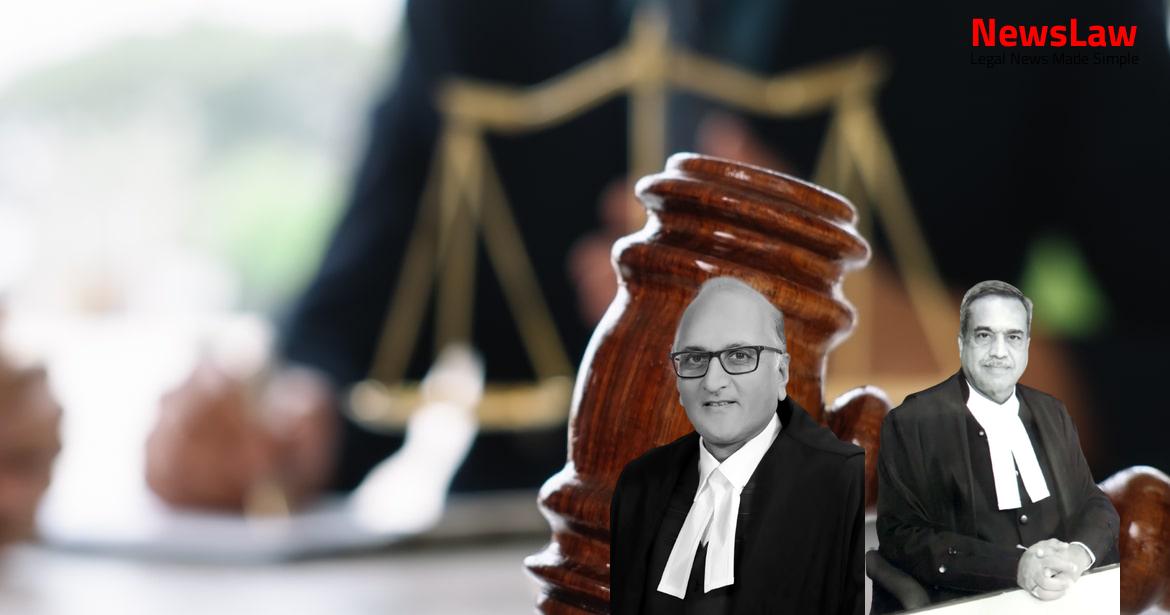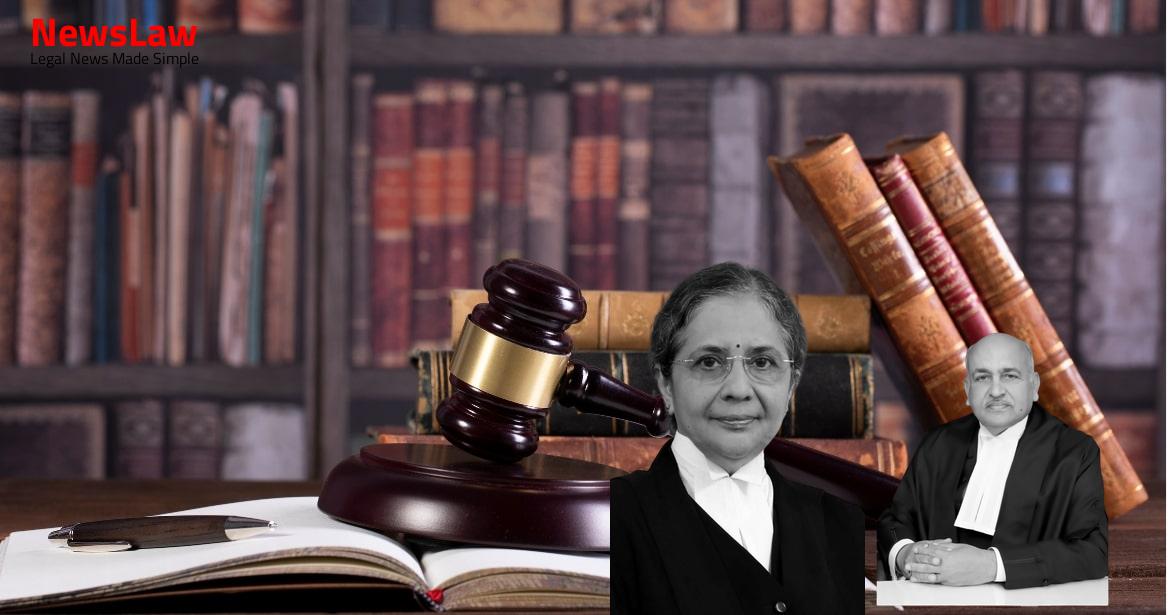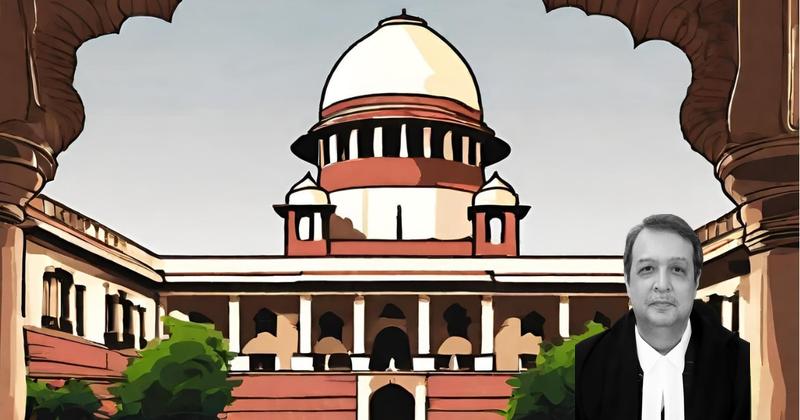The legal case delves into the application of the promissory estoppel doctrine in safeguarding industrial rights, focusing on a dispute between Birla Corporation Limited and Jai Prakash Associates Limited. The Supreme Court of India’s decision upholds the importance of honoring commitments made in notifications to industrial units, ensuring their entitlements are protected. Stay informed about this significant ruling in the realm of industrial rights. #SupremeCourtIndia #LegalCase #PromissoryEstoppel #IndustrialRights
Facts
- The State issued a notification in 1998 providing for a rebate in tax payable under the Uttar Pradesh Trade Tax Act for goods with specified fly ash content.
- The government later rescinded the notification due to lack of increase in industrial units or fly ash consumption, resulting in no extra disposal of fly ash.
- A new notification in 1998 granted a rebate subject to conditions, including manufacturing goods from fly ash purchased within Uttar Pradesh.
- One respondent, Birla Corporation Limited (BCL), set up a factory in the notified area and commenced production in 1998 but was denied the rebate post-2004.
- Another respondent, Jai Prakash Associates Limited (JPAL), challenged a 1998 notification due to conditions specified and later set up a factory in the notified area to avail of the rebate.
- Both respondents filed writ petitions challenging the conditions of the 1998 notification before the High Court on grounds of discriminatory treatment.
- The High Court upheld the challenge to the notification regarding the exemption available to units based on fly ash industries.
- The rebate on tax for units using fly ash as raw material in certain districts was declared unconstitutional by the High Court.
- The rebate will now be available to units outside the state as well.
- The State Government’s justification based on supervening public interest was rejected by the Court.
- The rebate granted only to cement manufacturing units in certain districts was deemed violative of Constitutional provisions.
- The notification was declared applicable to cement manufacturing units in neighboring states using fly ash as raw material.
- The Notification dated 27 February, 1998, was advised to be rescinded after the High Court’s decision.
- The Council of Ministers recommended the rescinding of the notification based on the judgment.
- The High Court’s decision indicated that the notification issued on 14 October, 2004 did not stand the test of judicial scrutiny.
- The state of Uttar Pradesh appealed against the High Court’s decision, which was eventually affirmed by the Court.
Also Read: Balancing Justice: Case Summary of C.P. No. 16/2017
Arguments
- The appellants are relying on previous court decisions which held that notifications cannot apply to units set up before their issuance.
- The appellants argue that the notification dated 14 October, 2004 cannot have retrospective effect.
- The foundational fact for the claim for refund based on the notification dated 27 February, 1998 depends on proving that the tax burden was not passed on to consumers.
- They cite court decisions to support their argument, emphasizing the burden on the state to justify the withdrawal of benefits.
- The High Court’s reasoning for sustaining the challenge to the notification dated 14 October, 2004 is also highlighted by the appellants.
- The appellants contend that the State cannot resile from the promise made in the notification dated 27 February, 1998 based on the doctrine of promissory estoppel.
- They argue that the impugned notification cannot be construed as having retrospective or retroactive effect.
- The State’s concern about verification of claims from industries in neighboring states has been dismissed by the Court in the past.
- The appellants distinguish the decisions brought up by the State regarding promissory estoppel.
- They assert that the State cannot withdraw benefits with retrospective effect once industries have been established based on previous notifications.
- The requirement for rebate entitlement depends on whether the burden was passed on to consumers.
- The appellants challenge the State’s decision to rescind the notification dated 27 February, 1998, questioning the invocation of supervening public interest.
- They argue that the impugned notification violates principles of promissory estoppel and is arbitrary.
- The State is urged to justify the withdrawal of benefits based on overwhelming circumstances.
- The appellants argue that the State failed to prove supervening public interest justifying the impugned notification.
- The reasons provided by the State for issuing the notification dated 14 October, 2004 are also challenged by the appellants.
- The appellants emphasize that the new industries continue to fulfill the objectives behind the initial notification.
- The appellants reject the State’s reasoning on supervening public interest and highlight the lack of justification for the rescission of benefits.
- The appellants argue that the State’s concerns do not validate the withdrawal of benefits to existing industrial units.
- The reasons stated by the State for withdrawing benefits are contested by the appellants.
- The lack of authority for retrospective effect is pointed out by the appellants.
- The appellants stress that the notification dated 27 February, 1998 was aimed at promoting the use of fly ash in Uttar Pradesh.
- The use of fly ash in industries set up between 27 February, 1998 and 14 October, 2004 is underscored by the appellants.
- The appellants argue that only the legislature can enact laws to change benefits retrospectively, not the executive branch.
- The appellant-State resisted the writ petitions by filing an affidavit before the High Court.
- The refund proceedings are pending for decision before the concerned authority, which will be considered separately.
- The respondents argue that the appeals should be dismissed as they lack merit.
- Ms. Aishwarya Bhati represented the State as the learned senior counsel, while Mr. S.K. Bagaria and Mr. S.B. Upadhyay represented the respondents.
- The argument of unjust enrichment was raised for the first time before this Court.
Also Read: Judgment by Supreme Court of India in M/s. Bhilwara Processors Ltd. vs. Department of Central Excise
Analysis
- The State Government issued a notification dated 14 October, 2004 rescinding a earlier notification dated 27 February, 1998, affecting the rebate facility for industrial units.
- The industrial units established as per the promise made in the 1998 notification, which had already commenced production before 14 October, 2004, should continue to receive the benefits as specified in the original notification.
- The impugned notification of 2004 should not disrupt the accrued rights of industrial units that fulfilled the conditions of the 1998 notification.
- The State’s reasoning for revoking the earlier notification in light of a High Court decision and logistical issues did not justify the retrospective effect of the new notification.
- The Court highlighted the need for a rigorous standard of proof for the State to act in public interest and change policies that affect accrued rights of entities.
- Promissory estoppel doctrine was considered in context of the State’s obligations to honor commitments made in notifications to industrial units.
- There was emphasis on verifying claims of refund for qualifying industrial units and ensuring no unjust enrichment.
- The Court found that the impugned notification should have prospective effect and not impact industrial units already established based on the 1998 notification.
- The underlying intent behind the 1998 notification was to encourage investment, address environmental concerns, and provide employment opportunities in designated areas of Uttar Pradesh.
- The judgment focused on protecting the rights of industrial units established before the new notification came into effect, safeguarding their entitlements under the original notification.
- The petitioner had already started production establishing the factory in Tanda before the issuance of the impugned notification.
- The principle of promissory estoppel was attracted due to the petitioner acting on the assurance given.
- The principle of promissory estoppel has been acknowledged in various judgments of the Hon’ble Supreme Court, including Kalyanpur Cement Ltd (supra).
- Maintaining people’s confidence in the administration is crucial, and the government should ordinarily abide by its assurances or promises.
- While the government has the right to change its policy, this is subject to judicial review to ensure that fundamental or statutory rights of citizens are not infringed.
- Section 5(2) of the 1897 Act does not give the Executive the authority to rescind or withdraw rebate facilities from a date prior to the notification.
- The power under Section 5(2) is limited to allowing rebates from a date prior to the notification.
- Section 21 of the Act does not provide the authority to withdraw rebates from a date prior to the notification.
- The power under Section 21 is to add, amend, vary, or rescind notifications, orders, rules, or bye-laws issued.
- Decisions in Trikuta Roller Flour Mills P. Ltd. and Shree Durga Oil Mills are specific to those cases and do not apply here.
- Observations made in previous proceedings do not hinder the respondents from claiming refunds.
- Respondents must show that claimed amount was not passed on to consumers.
Also Read: Agarwal v. Family Court: Resolving Document Production Dispute
Decision
- The appeals have been dismissed with observations.
- All pending applications have been disposed of.
- No costs have been ordered.
- The appeals have failed.
- The decision will be made in accordance with the law.
Case Title: THE STATE OF UTTAR PRADESH Vs. M/S BIRLA CORPORATION LIMITED
Case Number: C.A. No.-001579-001579 / 2019



